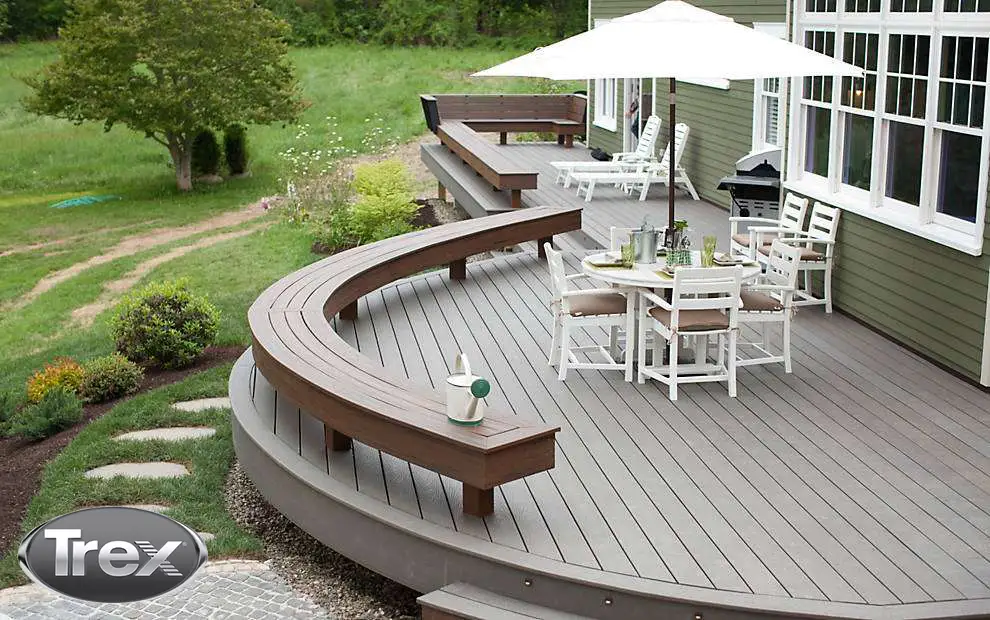How It’s Made
Pressure-treated lumber is wood to which chemicals have been applied and then exposed to high pressure to distribute the chemicals deep into the wood. This process allows the wood to last for a very long time, even when exposed to weather, moisture, and insects. Composite decking, on the other hand, is manufactured by combining wood pulp with various plastics that are then extruded to produce boards.
Durability
Both treated lumber and composite decking are very durable, often lasting the entire life of a deck. Composite decking is essentially rot and decay proof by its make-up. The durability of pressure-treated decking is so high that many companies offer lifetime warranties on their pressure-treated wood products. However, if not cared for properly, treated lumber can twist or crack, which is not something you need to worry about with composites.
Price
Price is often the deciding factor between pressure-treated lumber and composites as the lumber is much less expensive. Composite decks are generally about twice as expensive as a wood deck, but that extra cost buys you a lot less maintenance.
Maintenance
This is a significant area of difference for the two products and a major factor why more people are turning to composites. Due to its uniform make-up, composite decking is virtually maintenance-free. You may have to wash it a couple of times a year, but that’s about it. Pressure-treated lumber requires quite a bit more maintenance. Being wood, the lumber can begin to look weathered if not maintained. Generally, minimum care levels require that you wash and seal a treated deck regularly to keep it looking its best.
The Look
Lumber decks and composite decks look very different. Lumber decking can be stained or painted a variety of colors to fit the look you’re trying to achieve. Composite decking, on the other hand, comes in a variety of colors that can be matched to the environment. However, there is no way to change the color of composite decking because the material itself is dyed.
We hope we’ve given you several things to consider as you research your new deck. With the many decking options now available, we recommend you visit your local Carter Lumber to see in-person the difference for yourself. Our knowledgeable employees can answer any questions you may have regarding the differences between treated lumber and composite materials for your deck.

